The Washington Huskies football team represents the University of Washington. A former Pac-12 Conference member, the Huskies now compete in the Big Ten Conference in NCAA Division I FBS. Their home field is Husky Stadium, located on the university's Seattle campus, which has served as their home since 1920.
1963: Apple Cup Trophy Introduced
Since 1963, the Apple Cup trophy has been presented to the winner of the game between Washington and Washington State by the state's governor.
1968: Astroturf Field Installation
In 1968, the Washington Huskies became the first major collegiate team to install an Astroturf field, following the precedent set by the Astrodome.
1973: Team Wears Purple Helmets
In 1973, during Jim Owens' tenure, the entire team wore purple helmets.
1974: Team Wears Purple Helmets
In 1974, the entire Washington team wore purple helmets for the second consecutive season under coach Jim Owens.
1975: New Helmet and Uniform Design
In 1975, Don James' first year as head coach, the Huskies adopted metallic gold helmets with a purple block "W" and white and purple center striping, inspired by the San Francisco 49ers.
1975: Dramatic Apple Cup Win
In the 1975 Apple Cup, Washington rallied from a 27–14 deficit with three minutes left to defeat Washington State 28–27, leading to the resignation of WSU Head Coach Jim Sweeney a week later.
1977: Warren Moon Shares Pac-8 Player of the Year
Warren Moon shared the Pac-8 Player of the Year award with Guy Benjamin in 1977.
1978: Warren Moon Joins Edmonton Eskimos
In 1978, Warren Moon joined the Edmonton Eskimos (1978-83) of the Canadian Football League.
1981: Biggest Apple Cup Meeting Since 1936
The 1981 Apple Cup meeting between 14th-ranked Washington State and 17th-ranked Washington was billed as the biggest in the series since 1936, with a Rose Bowl bid at stake for Washington.
1983: Offensive and Defensive Player Awards Created
In 1983, the Pac-8 began naming Offensive and Defensive Players of the Year, following Warren Moon sharing Pac-8 Player of the Year with Guy Benjamin in 1977.
1984: Huskies Lose Rose Bowl Bid
The 1984 Huskies were ranked No. 1 in October, but lost on November 10 to USC at the Coliseum, resulting in USC winning the Pac-10 championship and knocking the 10–1 Huskies out of the Rose Bowl.
1985: Miami's Home Winning Streak
Entering the September 24, 1994 game, Miami had an NCAA record home winning streak of 58 games and had not lost at the Orange Bowl since 1985.
1985: Lou Gellermann Becomes Public Address Announcer
In 1985, Lou Gellermann, a Husky Hall of Fame rower, began his tenure as the UW Football public address announcer, greeting fans with "Hello, Dawg fans!".
1989: Attendance Leader
Starting in 1989, Washington led the modern Pac-10 Conference in game attendance for nine consecutive seasons until 1997.
1990: Memorable Game in Program History
In 1990, Washington played a memorable game against USC, continuing a trend where the winner of this matchup often went to the Rose Bowl. The game featured the introduction of Washington's All-Centennial team at halftime and inspirational talks from historic players.
1991: National Champions
During the 1991 season, both Washington and Miami finished with identical 12-0 records and were crowned National Champions by different polls.
1992: Loudest Stadium
During the 1992 night game against the Nebraska Cornhuskers, ESPN measured the noise level at about 135 decibels, the loudest mark in NCAA history.
September 24, 1994: "Whammy in Miami" Game
On September 24, 1994, the Washington Huskies played the Miami Hurricanes in the "Whammy in Miami" game, marking the first football contest between the two schools.
1995: Uniform Change
In 1995, under Jim Lambright, Washington changed its helmets to solid purple with a gold "W".
1996: Last Win at the Coliseum
Prior to 2010, the last time that Washington won at the Los Angeles Memorial Coliseum was in 1996.
1997: Attendance Leader
Until 1997, Washington led the modern Pac-10 Conference in game attendance for nine consecutive seasons since 1989.
1998: Uniform Style Ended
In 1998, Washington stopped wearing solid purple helmets with a gold "W", which they had worn since 1995 under Jim Lambright.
2000: FieldTurf Installation
Prior to the 2000 season, the University of Washington was among the first to adopt FieldTurf, only one season after its installation at Memorial Stadium.
September 2001: Dempsey Indoor Facility Opens
In September 2001, the Dempsey Indoor facility, an 80,000-square-foot building, opened as an indoor practice area for Washington's football, softball, baseball, and soccer teams.
November 3, 2007: Last Road Win Against Stanford
Prior to their game against USC on October 2, 2010, Washington's last road win was on November 3, 2007, against Stanford, marking a 13-game road losing streak.
2007: Lou Gellermann Ends Tenure
In 2007, Lou Gellermann, the UW Football public address announcer, ended his tenure, which began in 1985.
2007: First Conference Win Since 2007
The Washington Huskies secured their first conference win since 2007 with a 16–13 victory over USC, sealed by a late field goal.
October 2, 2010: Huskies Face USC at the Coliseum
On October 2, 2010, the Huskies faced No. 18 USC at Los Angeles Memorial Coliseum, where they hadn't won since 1996.
2010: Warren Moon - Member of both Canadian and Pro Football Hall of Fame
As of 2010, Warren Moon (Edmonton Eskimos 1978–83) is the only player to be a member of both the Canadian Football Hall of Fame and the Pro Football Hall of Fame (NFL).
2010: "Blackout" Theme Unveiled
For the 2010 home finale against UCLA, the Huskies unveiled a "blackout" theme, featuring black end zones, black jerseys and pants, and encouraging fans to dress in black. They also wore black pants for the Apple Cup and the Holiday Bowl, winning all three games.
November 7, 2011: Husky Stadium Renovation Begins
On November 7, 2011, a $280 million renovation project began on Husky Stadium, leading to the relocation of home games to CenturyLink Field during construction.
2012: Home Games Moved to CenturyLink Field
During the 2012 season, Washington's home games were moved to CenturyLink Field to allow for the renovation of Husky Stadium.
August 31, 2013: Renovated Husky Stadium Reopens
The newly renovated Husky Stadium reopened on August 31, 2013, with the Huskies defeating Boise State 38-6 in their first game back.
December 6, 2013: Chris Petersen Hired as Head Coach
On December 6, 2013, Washington hired Chris Petersen as their new head football coach. Petersen had previously been the head coach at Boise State for eight seasons.
2014: New Uniform Set Revealed
Prior to the 2014 season, Washington unveiled a new uniform set featuring multiple jersey, pant, and helmet color options for various combinations. The chrome gold helmets from the previous season returned in the game against Arizona State.
April 11, 2017: Petersen's Contract Extended
On April 11, 2017, the Washington Huskies Athletic Department extended head coach Chris Petersen's contract through 2023. His annual salary was reported to be $4.875 million.
2017: Bob Rondeau Retirement
Bob Rondeau, known as the "Voice of the Huskies," retired in 2017 after announcing Washington football games for over 30 years.
2017: Chrome Purple Helmets Added
In 2017, chrome purple helmets were added to Washington's uniform set, expanding the available combinations.
April 2018: Apparel Deal with Adidas Agreed
In April 2018, the University of Washington agreed to a new 10-year, $119 million apparel deal with Adidas, set to begin in the summer of 2019, ending a 20-year partnership with Nike.
December 2, 2019: Chris Petersen Stepped Down
On December 2, 2019, Chris Petersen announced that he would step down as head coach and transition into an advisory role within the Washington football program.
2019: Adidas Apparel Deal Begins
In the summer of 2019, the 10-year, $119 million apparel deal between the University of Washington and Adidas officially began, concluding a 20-year partnership with Nike.
November 29, 2021: Kalen DeBoer Hired
On November 29, 2021, Washington hired Kalen DeBoer as their new head football coach. DeBoer had been the head coach at Fresno State for the previous two seasons.
2022: Honored Numbers Available for Reissue
As of 2022, all three honored jersey numbers for Washington Football, previously considered "retired," are available for reissue.
August 4, 2023: Washington Admitted to Big Ten
On August 4, 2023, the Big Ten Conference presidents voted to admit Washington as a new member, effective August 2, 2024.
October 5, 2023: Big Ten Announces 5-Year Conference Schedule
On October 5, 2023, the Big Ten announced the 5-year conference schedule, including Washington as they move to the conference for the 2024 season.
November 19, 2023: Announced Schedules
As of November 19, 2023, the schedules were announced.
December 3, 2023: Conference Opponents Record
As of December 3, 2023, Washington's records against conference opponents are as follows.
December 2023: Heisman Trophy Voting
As of December 2023, eight Washington players have ranked among the top finishers in the Heisman Trophy voting.
January 14, 2024: Washington Hires Jedd Fisch
On January 14, 2024, Washington announced the hiring of Jedd Fisch as their new head coach after Kalen Deboer left. Washington will also leave the Pac-12 Conference for the Big Ten Conference.
August 2, 2024: Washington Joins Big Ten Conference
On August 2, 2024, Washington will officially become a member of the Big Ten Conference.
2024: Apple Cup Series Record
As of the 2024 season, Washington leads the series against Washington State 76–34–6.
2024: Move to Big Ten Conference
In 2024, Washington Football will officially move to the Big Ten conference.
2025: 96th Season for Husky Marching Band
The 2025 season marks the 96th year for the University of Washington Husky Marching Band (HMB), which consists of 240 members.
Mentioned in this timeline
Adidas AG is a German multinational corporation the largest sportswear...

An apple is a widely cultivated edible fruit originating in...
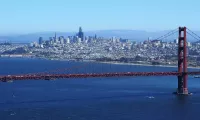
San Francisco is a major commercial financial and cultural hub...

Los Angeles is the most populous city in California and...
Arizona is a landlocked state in the Southwestern U S...

Football is a family of team sports primarily involving kicking...
Trending

6 months ago Carrie Coon juggled 'White Lotus' and 'Gilded Age' with only 48 hours break.
23 days ago Veronika Khomyn opens up about marriage with Sean McVay; Stafford aims for .500.
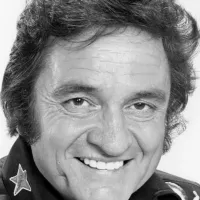
Johnny Cash the Man in Black was a highly influential American singer-songwriter renowned for his distinctive bass-baritone voice and the...

8 months ago Football pause for importance, Nico Iamaleava's transfer, and top college players.
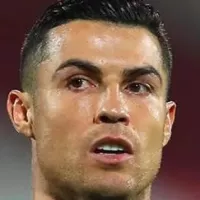
2 months ago Cristiano Ronaldo Achieves Billionaire Status: First Footballer to Reach Milestone
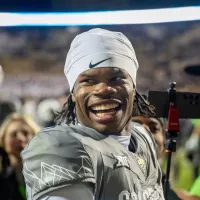
4 months ago Travis Hunter's College GPA Sparks Buzz After NFL Debut; Coach Praises Skillset.
Popular

Candace Owens is an American conservative political commentator and author...

Ilhan Omar is an American politician currently serving as the...

XXXTentacion born Jahseh Dwayne Ricardo Onfroy was a controversial yet...
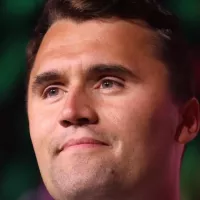
Charles James Charlie Kirk was a prominent American right-wing political...
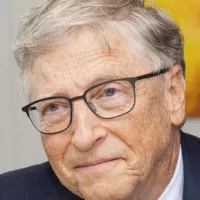
Bill Gates an American businessman and philanthropist revolutionized personal computing...

Michael Jordan often known as MJ is a businessman and...